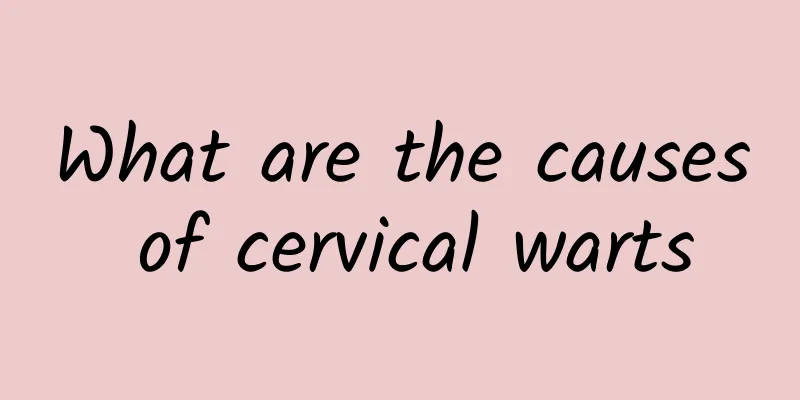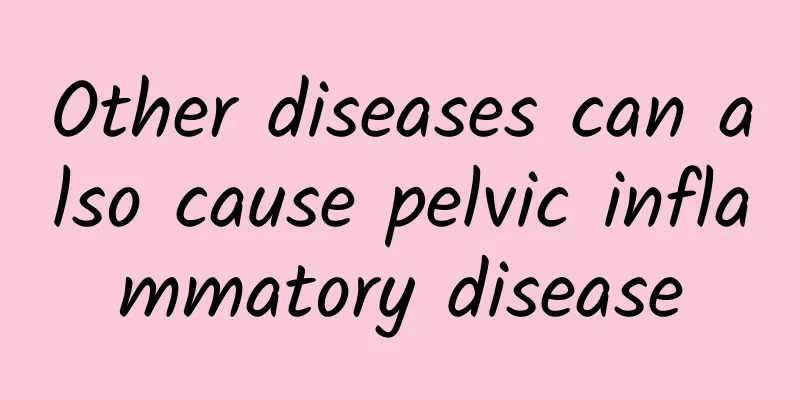What are the causes of cervical warts

|
Speaking of cervical warts, most people may not know much about them. In fact, they are quite harmful. Experts say that cervical warts are initially small, soft, and light red wart-like papules that are as big as millets. They gradually increase in size and have an uneven surface that is nipple-like, mushroom-like, or cauliflower-like, and may have a pedicle. So what are the causes of cervical warts? Let's take a look at the experts' introduction. 1. Misuse and abuse of antibiotics: As the virus replicates and mutates, drug resistance increases, the efficacy is poor, and the recurrence of the disease is directly related to irregular treatment and irrational use of antibiotics. Therefore, during the treatment of cervical warts, patients must not take medication on their own. 2. Low immunity: When the patient's immunity is low, the cervical wart virus will have an opportunity to breed and multiply, which will create the best conditions for the virus that has not been completely eliminated to cause recurrence. Experts point out that while patients with cervical warts should receive effective treatment, they should also pay attention to enhancing their own disease resistance, such as eating more nutritious food and doing more outdoor sports. 3. Irregular medication or incomplete treatment: Patients do not go to the hospital for examination and diagnosis in time, and blindly take medication on their own, delaying the treatment. Some patients' symptoms disappear after treatment, and they think they are cured (in fact, they are virus carriers) and interrupt treatment, resulting in insufficient drug dosage or insufficient treatment course or incomplete cure, leading to relapse. 4. Traditional and single treatment methods: Traditional drug treatments have limited ability to kill the virus that causes cervical warts, and it is difficult to completely eliminate the virus in the body. In addition, the wart virus has increased drug resistance, and the pharmacological effects of the drugs have weakened. Traditional treatments are difficult to break through the tolerance of the pathogenic microorganisms, and the host is prone to recurrence and is difficult to cure. Experts explain knowledge related to cervical warts 5. Bad daily living habits: Cervical warts are mostly caused by unclean sexual behaviors and habits, such as having multiple sexual partners, drinking, smoking, frequent sexual life, and eating spicy and stimulating foods, which can aggravate the condition and cause recurrence. In daily life, as long as you pay more attention to prevention and attention, you can avoid the recurrence of cervical warts. Warm reminder: The above is the expert’s introduction. We already have a certain understanding of this disease. Experts recommend that if you find yourself feeling unwell, please go to the hospital for examination as soon as possible to achieve early prevention and early treatment. |
<<: What are the common causes of cervical warts?
>>: What causes cervical warts
Recommend
Why is cervical erosion hard to cure? 3 ways to completely treat cervical erosion
Cervical erosion is now very common. Many women c...
Can eating vegetables to increase satiety help you lose weight without becoming obese? Dr. Liu Boen: Three hidden obesity mines
When thinking of good foods for weight loss, some...
Beautiful legs have a "machine" with freshness, sweetness and flavor
Puli's pure water and pleasant climate make i...
What should I do if I often have urinary urgency and unbearable pain in the lower abdomen during menstruation?
What should I do if I have dysmenorrhea and often...
Big eater! 38% of Chinese people eat more than usual during Spring Festival
The period after the Chinese New Year is the peak...
Latest research: Long-term consumption of bisphenol A may lead to obesity
Modern people really have food concerns! Accordin...
Will eating glutinous rice balls make you fat? Choose ginger red bean soup base without worrying about getting fat
It’s so happy to eat a bowl of hot dumplings in w...
The current costs of various ovarian cyst surgeries
Ovarian cysts can not only cause cancer in patien...
Complications caused by cervicitis
If cervicitis is not treated promptly, it may lea...
What are the symptoms of adenomyosis?
What are the symptoms of adenomyosis? Many people...
What is right ovarian cyst and what are its clinical symptoms
What is a right ovarian cyst? What are the clinic...
Sitting for a long time and lack of exercise will lead to constipation! Nutritionist Wu Yingrong: High-fiber coral grass is a master at removing constipation
Stool retention is a common problem faced by mode...
Can chronic cervicitis in women be completely cured? Five methods to treat chronic cervicitis in women
The health impact of chronic cervicitis on people...
Drink good water to stay away from dementia! Remember the 5 best times to drink water
People often say, "Drink more water when you...
What are the dangers of Bartholinitis to women?
To understand the harm of Bartholinitis, we must ...









